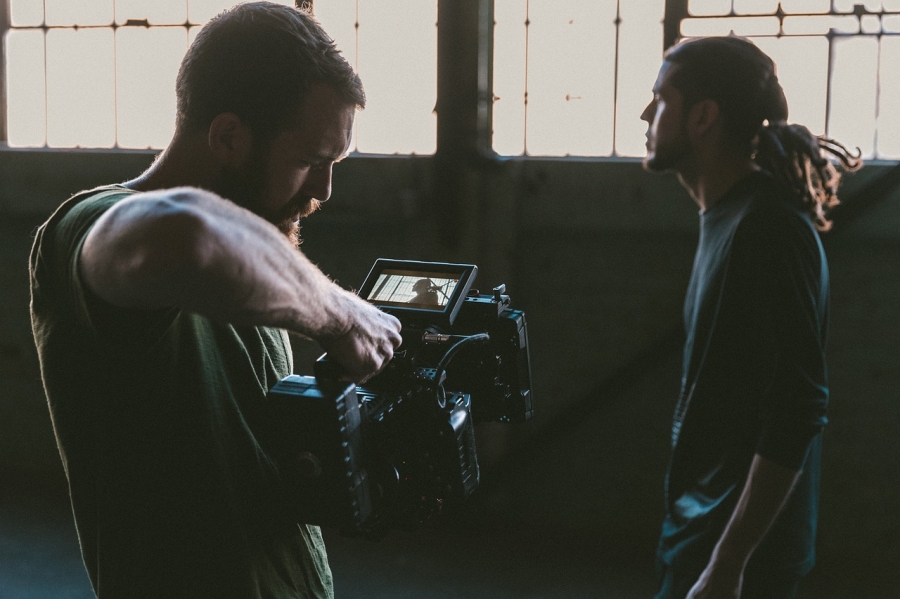Pre-Production in the Film and Television Industry: Preparing for Success 🎬
Pre-production is the critical phase of filmmaking where everything needed for the actual production is planned and organized. This phase lays the groundwork for the entire project and ensures that all elements are in place before the cameras start rolling. Successful pre-production is key to a smooth filming process, and it helps to prevent delays, budget overruns, and creative conflicts during the production phase.
In this guide, we will explore the key components of pre-production, including scriptwriting, casting, location scouting, budgeting, scheduling, and preparation.
1. Scriptwriting: The Foundation of the Film 📖
The script is the blueprint of any film or television project. It dictates the plot, dialogue, characters, and overall narrative. The script is developed in the earliest stages of pre-production and serves as the foundation for the entire production process.
Key Steps in Scriptwriting:
- Writing the Script: The script can either be an original idea or an adaptation. The writer must ensure that the narrative is engaging, well-structured, and aligned with the vision of the director.
- Revisions: After the first draft, the script may undergo multiple revisions based on feedback from the director, producer, and other key team members.
- Script Breakdown: A detailed breakdown is created, identifying all the elements needed for filming, such as props, special effects, locations, and costumes.
2. Casting: Finding the Right Talent 🎭
Casting involves selecting the right actors for each role, ensuring they match the characters in the script. The casting director plays a crucial role in finding talent, and the process includes auditions, callbacks, and final selections.
Key Steps in Casting:
- Casting Calls: The casting director issues casting calls, either open or by invitation, for actors to audition.
- Auditions: Actors perform scenes from the script to showcase their ability to portray the characters.
- Callbacks: Selected actors are invited for second-round auditions, where they may read additional scenes or meet with the director and producers.
- Final Selection: The director and producer choose the best actors for each role based on performance, chemistry with other actors, and the needs of the script.
3. Location Scouting: Finding the Perfect Setting 🏞️
Location scouting is a crucial step in pre-production. The locations chosen for the film or TV show must reflect the story’s tone, period, and setting. The location manager works with the director and producer to find and secure locations that are suitable for filming.
Key Steps in Location Scouting:
- Research: The location manager researches potential locations based on the script's requirements and the director’s vision.
- Site Visits: The team visits various locations to assess their suitability in terms of visual appeal, logistics, and accessibility.
- Negotiation and Permits: Once a location is selected, the location manager negotiates contracts with the property owner and arranges for necessary permits and permissions.
4. Budgeting: Managing Finances 💰
Budgeting is one of the most important aspects of pre-production. A detailed budget ensures that the project has the financial resources it needs to be completed on time and within the allocated funds.
Key Steps in Budgeting:
- Creating a Budget: The producer works with the director and department heads to create a detailed budget that includes all aspects of the production, from talent and crew salaries to equipment and location costs.
- Estimating Costs: Each department (e.g., costume, set design, special effects, post-production) provides estimates for the materials and labor required for their area.
- Contingency Fund: A portion of the budget is set aside as a contingency for unforeseen expenses that may arise during production.
- Approval: Once the budget is finalized, it’s presented to the producers, financiers, or studios for approval.
5. Scheduling: Planning the Filming Process 📅
Scheduling is another critical component of pre-production. It involves creating a detailed timeline that outlines when each scene will be filmed, how long each shooting day will last, and when the production team will need to prepare specific elements.
Key Steps in Scheduling:
- Creating a Shooting Schedule: The production team, led by the assistant director (AD), creates a shooting schedule that outlines which scenes will be filmed on which days.
- Allocating Time for Each Scene: Time is allocated for each scene based on complexity and location. Special effects, stunts, and intricate scenes may require additional time.
- Logistics: The schedule must take into account the availability of actors, crew, and locations, as well as any potential challenges such as weather or equipment availability.
6. Preparing the Crew and Equipment 🛠️
Pre-production also involves assembling the crew and preparing all the necessary equipment and resources to ensure the production runs smoothly.
Key Steps in Crew Preparation:
- Hiring Crew Members: Key crew members, such as the director of photography (DP), production designer, and costume designer, are hired based on their experience and skill set.
- Equipment Preparation: The technical team ensures that all the equipment, such as cameras, lighting rigs, and sound equipment, is ready for use on set.
- Rehearsals and Read-throughs: The director may schedule rehearsals with the actors and crew to ensure everyone is prepared for the actual shooting.
Conclusion: The Importance of a Solid Pre-Production Plan 🎬
Pre-production is the most crucial phase of filmmaking. It’s when the story is refined, the cast is assembled, locations are secured, and the entire team comes together to plan for the shoot. A well-prepared pre-production phase ensures that the actual filming process runs smoothly and efficiently.
By focusing on elements such as scriptwriting, casting, location scouting, budgeting, scheduling, and crew preparation, filmmakers set themselves up for success. A solid pre-production plan is key to avoiding issues that may arise during filming and ensures the project stays on track both creatively and financially.
To learn more about film and television industry careers, visit MusicalArts.com and Jobs.MusicalArts.com for job listings and resources.




